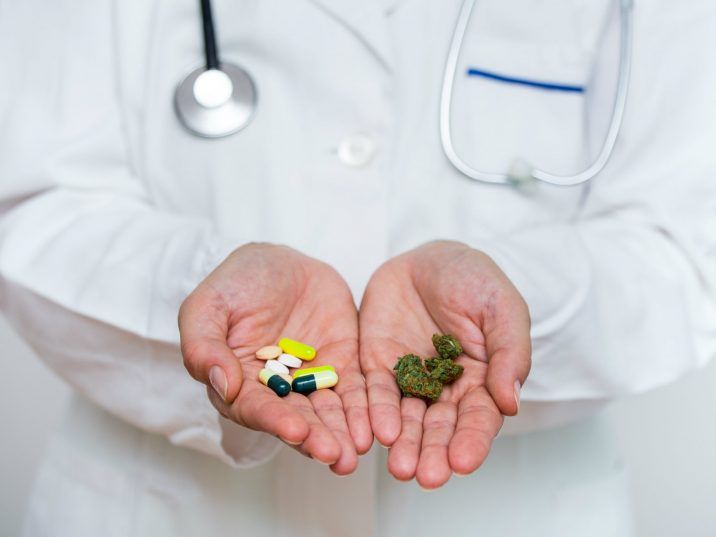Pharmaceutical companies projected to lose $3 billion per single legalization event in the U.S.

Pharmaceutical companies projected to lose $3 billion per single legalization event in the U.S.
Investigators came to that figure after reviewing how legalization between 1996 and 2019 influenced stock market returns for listed generic and brand pharma…
Investigators came to that figure after reviewing how legalization between 1996 and 2019 influenced stock market returns for listed generic and brand pharma firms
Author of the article:
Angela Stelmakowich
Publishing date:
Sep 02, 2022
A U.S. study exploring cannabis legalization and its influence on pharmaceutical manufacturers suggests that investors anticipate a single legalization event will reduce drugmaker annual sales by an average of US$3 billion ($3.9 billion).
Using a data set and estimation approach, investigators from California Polytechnic State University and the University of New Mexico came to that figure after reviewing how legalization between 1996 and 2019 influenced stock market returns for listed generic and brand pharmaceutical firms.
The main study sample involved daily stock return data of 556 companies, 520 of these classified as pharmaceutical preparation or drugs entities, notes a research article posted Aug. 31 by the open-access, peer-review journal PLOS One. A subsample of 91 firms had 16 brand drugmakers and 75 generic drugmakers.
In general, the average market value of a firm in the main sample is US$8.9 billion ($11.7 billion), and in the subsample, “generic firms tend to be much smaller than brand firms.”
What investigators found was that returns for companies, on average, were 1.5 to 2 per cent lower 10 days following legalization in a U.S. state.
Calling the difference statistically significant and noting that it persists during the 20 business days following the event, researchers say “this corresponds to a loss of about $133 million to $177 million ($174 million to $232 million) per firm.” They explain the number is calculated by multiplying the cumulative abnormal returns value, namely the 1.5 to 2 per cent, by the average market value.
Are cannabis users ditching pharmaceuticals?
Researchers suggest that legalization of weed by U.S. states “is likely increasing the use of cannabis as an alternative to conventional pharmaceutical drugs.”Support was offered to just such an approach in line with a number of different studies over recent years.
In 2019, a review of 450 adults who identified as current cannabis users in the U.S. showed 44 per cent of medical marijuana users stopped taking a pharmaceutical drug, or used less of one, or both, in favour of cannabis.
“In general, people use medical marijuana to treat pain, back problems, depression and headaches,” the University of Michigan reports.
Cannabis is also used, both anecdotally and in research studies, to treat mental health conditions and symptoms.
In the spring of 2022, researchers from Calgary’s Harvest Medicine reported their findings support the view that using medical cannabis can help with treating anxiety and depression. Based on information from 7,362 patients, investigators cited improved outcomes after initiating treatment and at the one-year follow-up.
A survey of U.S. adults, results of which were released this past June, show that three-quarters of poll participants would prefer holistic solutions and 62 per cent would opt for weed over pharmaceuticals to treat medical issues. The survey was conducted by The Harris Poll on behalf of cannabis consumer products provider, Curaleaf Holdings, Inc., and involved almost 2,000 U.S. adults 21 and older.
Despite the support, however, researchers from Washington State University reported in late 2021 that cannabis consumers who also used other drugs to treat various conditions might be reducing the effectiveness of the latter.
Investigators found the positive effects of the treatment drugs being taken might decrease or their negative effects might increase, notes a university statement, explaining it appears certain cannabis cannabinoids and metabolites “interfere with two families of enzymes that help metabolize a wide range of drugs prescribed for a variety of conditions.”
Medicinal marijuana is a longer-term influencer on pharmaceutical returns
As for the newly released study, investigators write “when we break out investor responses across medical and recreational legalization, we find that much of the average is driven by medical legalization events.”
While cannabis legalization, overall, is associated with reduced stock market returns for pharmaceutical firms, “medical legalization generates a more muted effect on cumulative returns than recreational legalization, but is more persistent. Generic firms are affected more in percentage terms, while brand firms are more affected in terms of magnitude due to their larger market value.”
“We find the average change in a firm’s market value per legalization event is US $63 million,” investigators write. They further point out that when all companies are included, the economic significance of an estimated US$9.8 billion “loss in market value across firms per cannabis legalization event is extremely large.”
According to Marijuana Moment, brand drugmakers see the difference in their returns disappear a few days after the event, but for generic drug companies, investor response to cannabis reform “is larger in magnitude and is persistent.”
Even so, authors add that results should be interpreted cautiously. “A key limitation is that we model investors as rational, which may overstate the economic significance of our results,” the article reads, pointing out as well that researchers “are limited to publicly traded firms and past legalization events.”
For patients, “cannabis may operate as a drug outside the pharmaceutical marketplace for the foreseeable future, which may limit patient ability to pay for cannabis treatment through employer health insurance programs,” authors write.
“Yet despite likely increased out-of-pocket expenses, our work and others’ suggest that many patients are substituting away from pharmaceutical drugs toward cannabis after legalization,” they add
And now you know why Pharmaceutical companies donate so much money to anti cannabis organizations.


